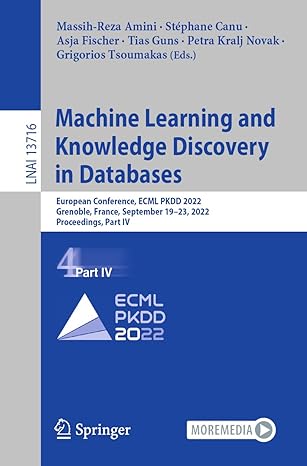Question
Equals/hashCode/compareTo for HashSet and TreeSet elements . Consider the following object classes in Section 1.2: Point2D, page 77, a point is identified by its coordinates
Equals/hashCode/compareTo for HashSet and TreeSet elements. Consider the following object classes in Section 1.2:
-
Point2D, page 77, a point is identified by its coordinates (x, y)
-
Date, page 103, a Date is identified by (month, day, year)
-
String, page 80, a String is identified by its string contents
-
Counter, page 85, a Counter is identified by its name
-
Examine these object classes for their equals, hashCode, and compareTo, and determine if Point2D can be used for HashSet
and separately if it can be used for TreeSet and then if Date can be used for its HashSet or TreeSet, and so on. Briefly explain your reasoning. Note that the same analysis holds for HashMap and TreeMap using the object as a key (values in Maps need no equals, etc.). -
If the class doesn't have both an equals method and a hashCode method, for example Date.java on page 103, write equals and/or hashCode for it based on the identifying fields listed above, so that it ends up with both methods. After this, HashSet should be usable for all four object classes. ===================================================================================================================================
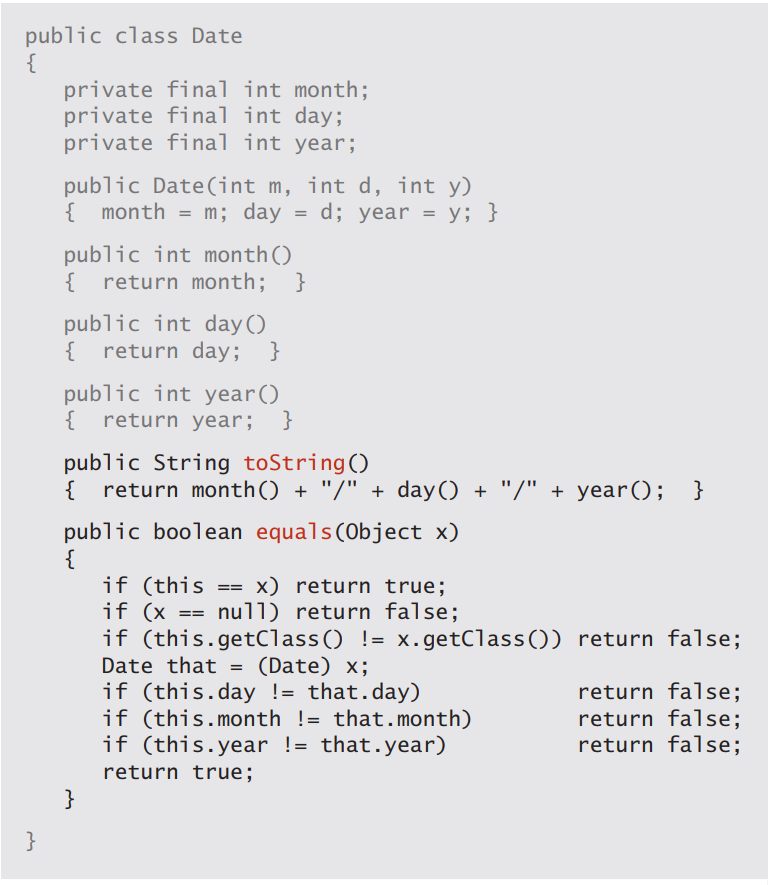
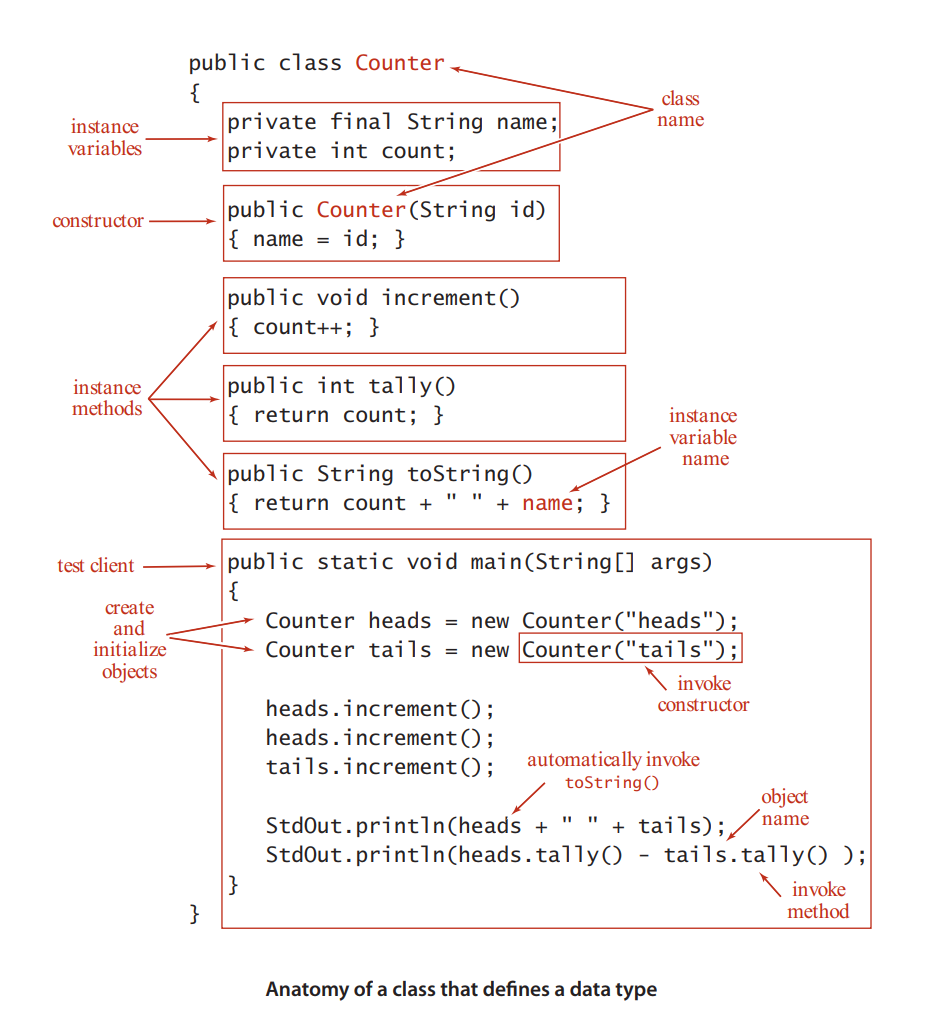
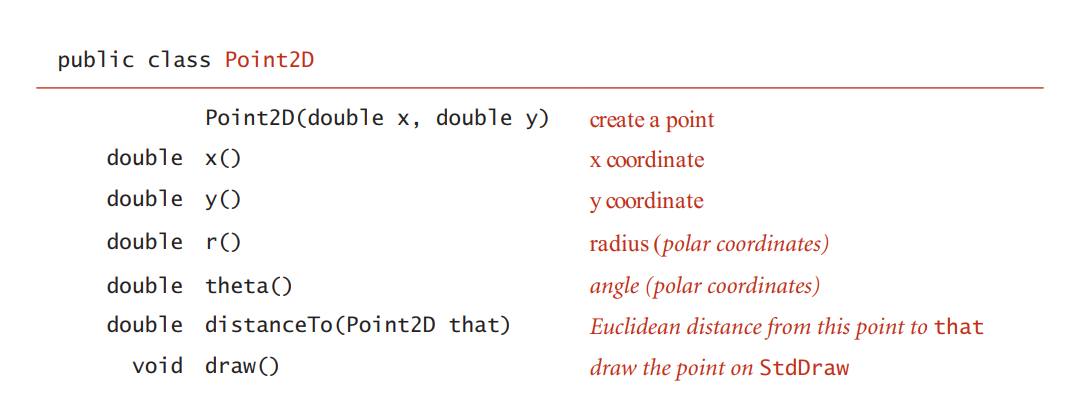
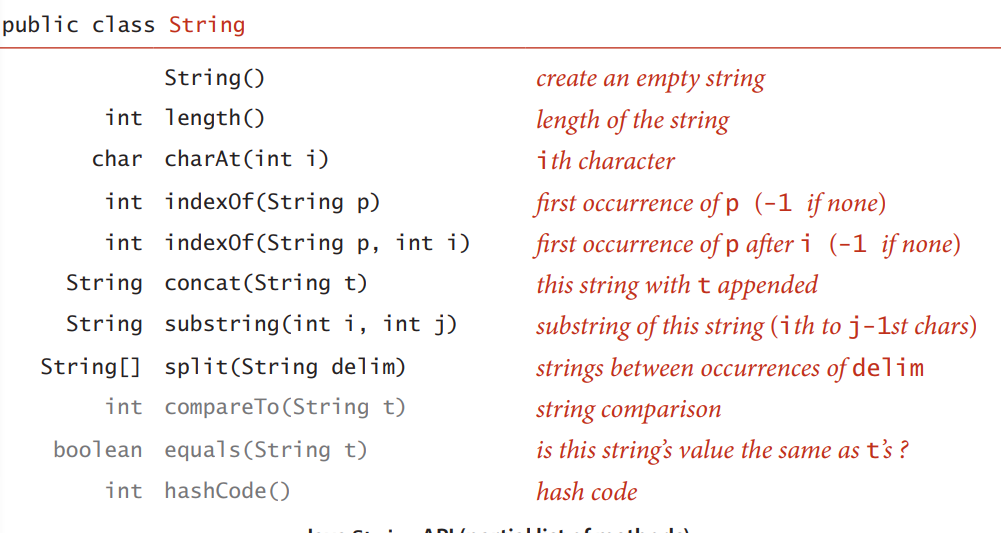
Step by Step Solution
There are 3 Steps involved in it
Step: 1

Get Instant Access to Expert-Tailored Solutions
See step-by-step solutions with expert insights and AI powered tools for academic success
Step: 2

Step: 3

Ace Your Homework with AI
Get the answers you need in no time with our AI-driven, step-by-step assistance
Get Started


